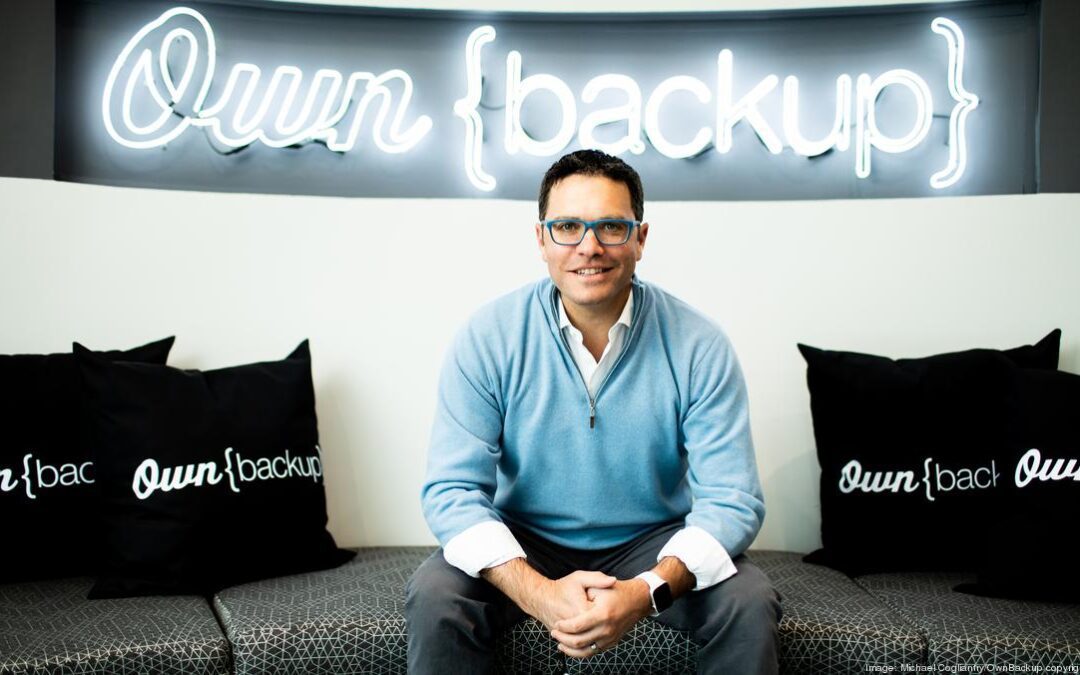

Software as a Service (SaaS) applications are now ubiquitous, and an increasing majority of IT spend for most companies. Gartner predicts the SaaS market will grow from $118 billion in 2021 to $300 billion by 2026, at a 15% CAGR annually. The average number of SaaS applications have also dramatically increased over the last ten years due to two decades of Cambrian explosion in SaaS and cloud-based software delivery. Okta reports that the average customer uses 88 applications per customer to run mission critical corporate activities, with platform apps from Salesforce, Microsoft, and Google holding the top three spots. The advantages of SaaS applications are clear – ease of implementation, scalability, continuous updates, reliability, and cost-effectiveness. However, despite all the growth and adoption in SaaS, one question has remained largely unanswered to date. What happens to customer data when these services fail or are compromised?
Under the common “shared responsibility” model for SaaS and cloud services, the service provider owns the application and its underlying infrastructure, but responsibility for protecting and backing up data falls on the end customer. While SaaS application providers may provide some rudimentary backup functionality, the customer must ensure their own ability to restore data in the event of loss or downtime. SaaS customers often overlook this blind spot until something goes catastrophically wrong, such as the large Salesforce outages in 2016 and 2019 that resulted in significant financial consequences for several customers. In fact, a recent cloud threat report published by KPMG found that three-quarters of organizations have experienced data loss from a cloud service on more than one occasion.
Native SaaS backup is a technically difficult challenge. Traditional backup services are designed for saving and restoring infrastructure wholesale – entire databases, VMs, or storage devices in one go. In contrast, the data stored in SaaS environments is messy. Capturing and backing up raw data is still important, but it is the more accessible part of the puzzle. It is almost impossible to use raw data for a meaningful restoration without an understanding of the metadata and relationships between objects that create the richness of SaaS applications. Moreover, providing consistent data protection across multiple clouds and addressing nuances of data restoration using a simple API-based approach can make a difference between minutes and weeks of restoration time required.
This is why we are thrilled to announce our investment in OwnBackup, the category-leading cloud data protection and management platform for SaaS applications. OwnBackup’s flexibility, ease of use, and reliability are second to none, and it has proven time and again that it can protect and maintain its customers’ data across numerous SaaS application outages, botched migrations, and data-corrupting accidents. The platform currently supports applications in the Salesforce ecosystem (e.g., Salesforce, nCino, Veeva, and Sage) and recently added support for Microsoft Dynamics 365. OwnBackup’s is aiming to empower customers to own and protect their data on any cloud platform. As OwnBackup adds support for additional core enterprise SaaS applications, the market opportunity increases dramatically beyond the current $10B Salesforce market to a broader $150B+ SaaS data protection market.
OwnBackup’s comprehensive data protection and management capabilities extend beyond simple backup and recovery functionality. These value-added features include sandbox seeding to support developer testing efforts in new environments and data archiving to reduce storage costs by shifting legacy data to cheaper cloud storage options. Additionally, customers can leverage OwnBackup’s mission critical security features such as data encryption, access controls, blockchain verification of backup integrity. This comprehensive data management platform allows organizations to rely on OwnBackup as a single pane of glass to manage, backup, and secure all their SaaS data.
We have been tracking OwnBackup for years, watching it become the best-of-breed solution it is today. The company has received multiple accolades, including being recognized in the Forbes Cloud 100 list, ranking #38 on the 2021 Financial Times Americas’ Fastest Growing Companies list, and #79 on the 2020 Deloitte Technology Fast 500™ list. Today OwnBackup backs up over 10 petabytes of mission-critical data for nearly 4,000 customers of the world’s largest and most influential organizations, including Cargill, Medtronic, AECOM, Aston Martin, Delivery Hero, Guidewire Software, the Make-A-Wish Foundation, Medtronic, Navy Federal Credit Union, Singapore Economic Development Board, the University of Miami, and Zoom. We believe that as the proliferation of SaaS applications continues, every company will need OwnBackup as part of a responsible business continuity plan.
OwnBackup has been on an impressive growth trajectory since inception and displays best-in-class SaaS metrics. Equally remarkable is the stellar team that CEO Sam Gutmann has assembled with his co-founder and CTO Ariel Berkman. OwnBackup’s executive team includes respected stalwarts like Head of Product & Strategy Adrian Kunzle, who was previously the EVP of Platform and SVP of Product Development at Salesforce. Other impressive team members include sales and marketing expert CRO Ori Yankelev and CFO Jeannie Mun, who has helped companies grow from Series A to $500M+ in revenue.
At B Capital Group, we believe that data is the world’s most valuable asset, and data security and protection are of paramount importance for all companies. OwnBackup’s category-defining SaaS data management platform provides the most comprehensive data protection solution for managing this essential information. We are thrilled to partner and support the OwnBackup team on their mission to be the default choice for cloud data protection for businesses worldwide.